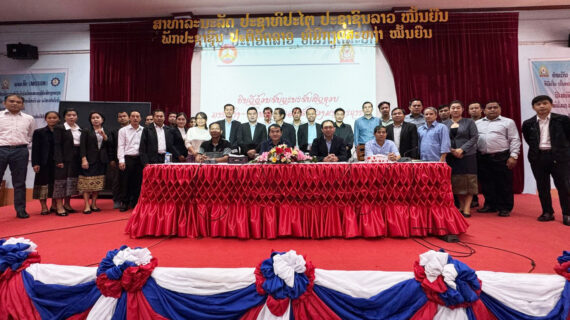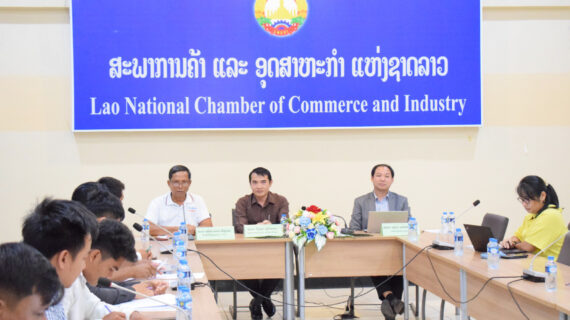Lao Economy Needs Cash Injection
The government needs to speed up the provision of the loans it has approved as this is one of the best ways to help Lao businesses survive amid the Covid-19 pandemic, according to a senior business representative.
Speaking in an interview on Lao National Television last week, Vice President of the Lao National Chamber of Commerce and Industry, Mr Daovone Phachanthavong, said the best way to help Lao businesses was to inject money into the economy.
“The Chamber meets almost every day to discuss ways to inject money into the economy,” he told reporters in response to questions about what the Chamber was doing to help its members.
The Chamber has more than 4,000 members nationwide, most of which are small and medium-sized enterprises (SMEs).
Mr Daovone said Lao businesses, especially (SMEs), were struggling after suspending their operations for more than a month as part of the nationwide effort to limit the spread of Covid-19.
The businesses that had been worst affected by the virus outbreak included airlines, travel agents, hotels, transport operators, restaurants, massage parlours, golf clubs, and garment factories.
Mr Daovone welcomed the government’s allocation of concessional loans worth 100 billion kip to SMEs to minimise the harmful impact of the virus outbreak on businesses.
The low interest loans will be distributed to SMEs through four banks. The money will be a much-needed source of finance and enable businesses to deal with the challenges they are facing due to the Covid-19 pandemic, he added.
He also said an international financial institution had offered Laos a loan of US$80 million, half of which would be provided for the development of SMEs.
China has also offered a huge loan package. The Chinese government has agreed to provide US$300 million in loans to SMEs, with the first US$100 million to be distributed soon.
Mr Daovone advised the government to speed up the development of agriculture so that more produce could be exported, adding that China is in need of agricultural produce. At present, 300 trucks of produce are shipped from Laos to China each day.
The high demand for agricultural produce in China would create a better environment for the development of agriculture, he added. A positive effect of the virus outbreak was that people in Laos now spent less on unnecessary luxury goods, he noted.
Mr Daovone also said businesses needed to adjust their operating methods, adding that the pandemic had created both challenges and opportunities. Some business operators would see the outbreak as an opportunity, as was evidenced by the number of people who had begun offering food delivery services.
Cr:http://www.vientianetimes.org.la/





